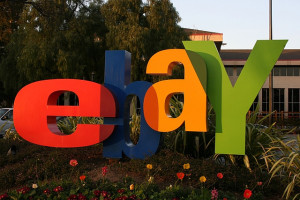 No, this is not another article predicting the demise of email marketing. It’s way bigger than that. The future of eCommerce itself is looking pretty shaky, and we should all be afraid.
No, this is not another article predicting the demise of email marketing. It’s way bigger than that. The future of eCommerce itself is looking pretty shaky, and we should all be afraid.
Of course, eCommerce isn’t going away anytime soon – it’s just not going the way many independent online retailers would like it to go.
According to a report conducted by the Ecommerce Foundation and Nyenrode Business University, online retail will be increasingly dominated by major online marketplaces like eBay, Amazon and Alibaba. The report suggests that nearly 40% of all online retail sales will come from the major online marketplaces by the year 2020.
The dominance of online marketplaces should be a concern for every independent retailer for three very good reasons.
1. The retailer does not own the relationship with a customer acquired via an online marketplace and is therefore unable to re-market to that customer via email marketing.
2. Online marketplaces are acquisition channels (this means they are expensive). If a retailer is unable to re-market to a customer acquired via an online marketplace, they may never achieve the kind of margins needed to generate significant profits.
3. The success of an online retailer in an online marketplace can be dashed by a simple change in search algorithm or listing policy, which they have no control over.
Essentially, in an online retail world increasingly dominated by online marketplaces, independent online retailers may be reduced to order fulfillment companies.
Is this the kind of future you want for your retail brand? We didn’t think so.
Take the Fight Back
In all seriousness, online marketplaces provide an incredibly valuable resource for retailers of all shapes and sizes. Many online businesses would not have seen the light of day if it were not for the likes of eBay and Amazon offering an easy route to market.
However, the strategy of keeping all your eggs in the online marketplace basket is risky.
If you are worried that online marketplaces represent a significant risk to your business, you can take the fight back by following these 7 tips.
7 steps to email marketing success for marketplace sellers:
1. Build your own website: I cannot stress enough the importance of investing in your own website. When you acquire customers via eBay or Amazon you are paying for the privilege each and every time they make a purchase from you. Email marketing is a retention marketing tool and therefore much cheaper than expensive acquisition marketing techniques. But this only makes sense if you are using it to drive traffic to a site where you are in control of the costs. When you make a sale through your own site you can collect the customer information and add it to your email marketing list. Your site should include a short email subscription form on every single page (featuring an enticing offer such as a discount coupon) to maximize your chance of converting browsers into subscribers.
2. Maintain brand consistency: Seller IDs should be consistent across all channels and match your own store site address. If you trade under multiple IDs, invest in multiple store URLs.
3. Use your packaging to maximum effect: Brand your packaging, invoices and delivery notes with your website address. Amazon’s terms and conditions forbid sellers from using inserts in their packages, but it is perfectly acceptable on eBay, so use inserts to promote your newsletter or offer a discount off the next purchase from your website.
4. Footers: How many non-marketing emails do you send every day? Order confirmations, customer service inquiries, orders placed with suppliers – they probably run into the hundreds or even thousands. Use your email footers to help you build your brand and promote your website.
5. Blog: Every business worth its salt should have a blog. You can blog about new product availability, how particular items might be used, product reviews, gift ideas, customer satisfaction, company awards, special promotions, company expansion…in fact, the list is endless. You can even get your customers to write blog posts for you. For example, a fashion retailer might solicit fashion tips from their customers (featuring their clothes), or a fishing tackle shop might ask their customers to post a picture of their latest big catch. A well-written blog will enhance your rankings on search engines and provide content for social media activity. Interesting, quirky, funny and useful blog posts also have the potential to go viral and can be a major source of traffic. Don’t forget to include product links and promotions on your blog pages, and remember to feature an email newsletter subscription form on every page.
6. Social media: Channels like Facebook and Twitter might not be great drivers of sales for online retailers but they are awesome engagement tools, and as such can drive considerable traffic to your site. Keep you posts interesting, relevant and timely, be sure to reply to any direct messages and remember to engage with your audience and not just broadcast to them. A great way of doing this is to ask questions. Encourage your social media followers to subscribe to your email list with the promise of a special promotion or email-only offer. iContact offer a form that can easily be integrated into your Facebook page to help you grow your list.
7. Marketplace optimization: As well as reducing costs by encouraging customers to visit your own store, it may also be possible to use email marketing to enhance your products’ visibility on eBay and Amazon. The increased sales driven by email marketing of a particular product may help you rank better in eBay’s search results or win the blue buy box – the most prominent position, next to the “Add to Basket” button – on Amazon.
This abridged post first appeared on the iContact Email Marketing Blog.
Photo credit: Ryan Fanshaw
(172)








